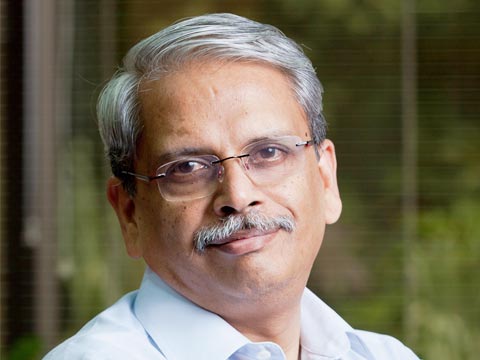
It’s been a promising year for established startups with the $16 bn Flipkart-Walmart deal, Paytm Mall bagging $445 mn funding and food delivering app Swiggy getting a whopping $310 mn funding. It’s also the year Swiggy, Paytm Mall, Byju’s and Policy Bazaar turned unicorns in the startup ecosystem. In a conversation with IndianRetailer, venture capitalist Kris Gopalakrishnan tells why this is good sign for budding entrepreneurs and how consumers will benefit from such deals. Excerpts:
It’s been a big year for Indian startups. There was Flipkart-Walmart deal and Paytm Mall and Swiggy got whopping funding, with that there are four new unicorns in the block. How do you look at the ecosystem?
India is the third largest ecosystem for startups. With Flipkart-Walmart deal, it will only encourage more entrepreneurship, more investors will come to India and it will create more jobs and opportunities. And the direct benefit of this is for the consumer, who will get more product and services at lower costs. This is a positive development for the Indian economy. Let’s look at it this way, in any economy, about 60-70 per cent jobs are created in the SME sector, and any SMEcreates a lot of jobs in its first 5 years and remains so. After that, any startup or SME gets more or less stagnated. The linkage is very clear and large number of new businesses needs to be created. About 5,000 startups are created every year in India and most of them are funded. There are about 10 times more businesses like mom-and-pop up stores, small and medium business that don’t get funded. We need more funds and we have to facilitate that more businesses get funding.
You spoke about funding. In the recent past, it’s only tech startups like Foodtech, Edtech and similar others that are getting top funding. Your comments?
These are the subsets of startups that are fundable and end up getting funded. The key driver for these startups is technology. For instance, the way food is ordered, delivered and consumed is completely changed by the intervention of technology. Hence, most of the startups that are making innovations are driven by technology and seem fundable for investors.
Having said that, another trend in the startup ecosystem is that only FMCG categories end up getting big funding. Why is it so?
Well, not really. Healthcare is seeing a major change with significant funding, B2B companies and enterprise companies are receiving some good funding and it will remain so in the next couple of years. More and more enterprise companies will continue to get good funding.
In context with the India Innovation Summit, what will the role of AI be in India’s future?
AI’s role is fundamental and it will be the foundational technology for the next tech revolution. It will drive the change for any industry. Going ahead, AI will take over daily chores like automatic ordering of food, groceries and other things, automatic bedding and even reverse bedding. Based on ML, AI will make life convenient learning your likes and dislikes, and a lot of opportunities exist in this regard.
Following GDPR, there’s pressing demand for data privacy in India. What are your observations?
On one side, we need to protect the privacy of an individual and the data, and we need to create a safe mechanism that will ensure that the consumer data is used for the benefit of the society. But for example, health data is private, and if we can share health data for further research or to find new medications, a society at large is benefitted from the data. Hence, we have to find a balance between protecting the data and the consumer interest.
Copyright © 2009 - 2024 Franchise India Holdings Ltd













